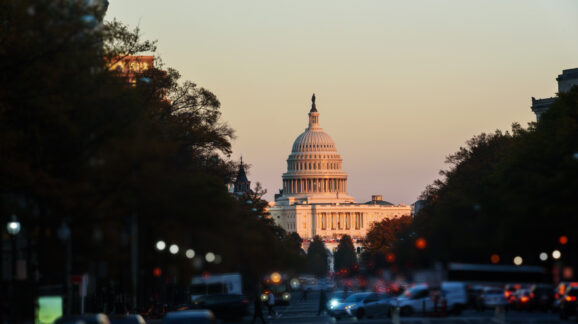Biden blocks Nippon Steel purchase of U.S. Steel in baseless protectionist maneuver

Photo Credit: Getty
With just days left in office, President Biden decided to block Nippon Steel from purchasing U.S. Steel, alleging it might “impair the national security of the United States.” CEI trade and labor policy experts, respectively, criticized the baseless protectionist maneuver.
Ryan Young, Senior Economist and trade policy expert:
“Politics wins again. Nippon Steel’s U.S. Steel buyout would have revived a fading company dependent on protective tariffs and subsidies. It also would have boosted steel-using industries such as autos and construction.
“The silver lining is that CFIUS, the government panel with final say over approving the deal, still has 30 days to extend the deadline Biden set this morning for abandoning the deal. Biden stepped in because the panel was deadlocked.
“President Biden accuses Nippon Steel of being a potential national security risk, without evidence. By itself this statement could damage America’s relationship with Japan, causing a national security risk.
“The scaremongering around Nippon Steel is baseless. The company is headquartered in Japan, with whom America has had a formal defense alliance since 1951.
“In addition to being one of America’s most important allies against China, Japan has long been one of America’s largest foreign investors, to the benefit of people in both countries. For context, the $14 billion Nippon Steel buyout is equivalent to about 2 percent of typical Japanese annual foreign investments in the US.
“The election is over, so Biden has no more need for populist pandering. This is nothing more than a political favor to union bosses—as distinct from the workers they represent, who support the Nippon Steel buyout.”
Sean Higgins, Research Fellow and labor policy expert:
“The Biden administration claims that national security concerns prompted them to halt the purchase of U.S. Steel by Nippon Steel, but the only thing they are protecting is the United Steelworkers union leverage over the domestic steel industry.
“Never mind that Nippon Steel wanted to buy U.S. Steel so it could better compete with China, which has long been accused of using its production capacity to manipulate international markets. Never mind that there was no plausible scenario in which Japan wouldn’t sell its steel to the states, especially if it owned U.S. facilities. Never mind that Nippon Steel had promised to honor U.S. Steel’s collective bargaining contracts.
“The union feared it would not have leverage over the Japanese company going forward and so it lobbied the administration hard to reject the purchase. The losers are everyone else who relies on a free market in steel, such as U.S. manufacturers.”
Related analysis: